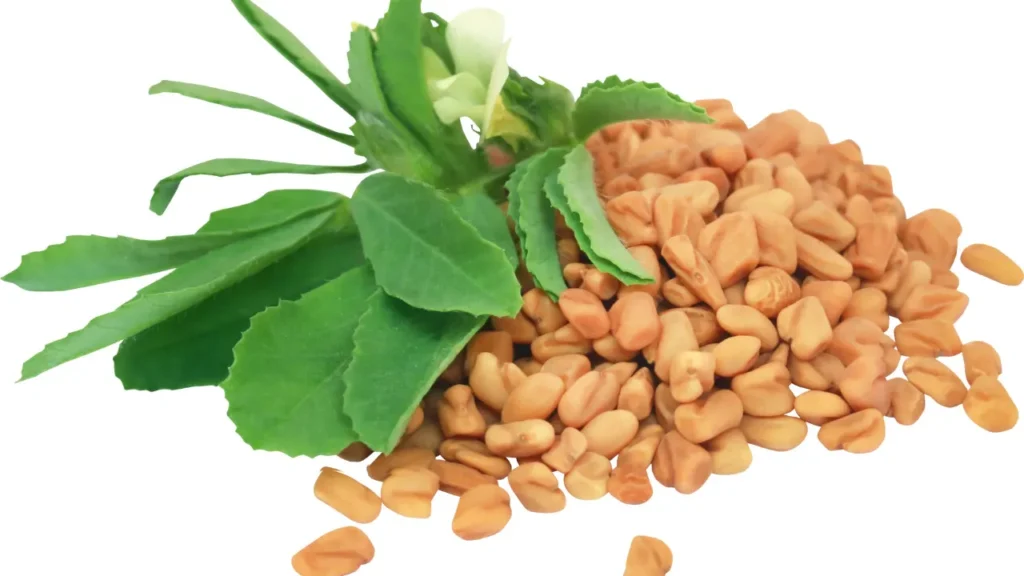Wallflower (W-3-Acetyl-Leucine-Longifolia-Fenugreek-Lipoic acid-Extract-Resveratrol) is a dietary supplement that has attracted the attention of scientific nutritionists recently due to its potential health advantages. The nature of wallflower, its chemistry, physiological properties, health advantages, ideal dosage, side effects, potential drug interactions, and responsible use as a nutritional supplement are all covered in this article. With the help of the information provided,if you are thinking about using wallflower, you will be able to make better, and more educated decisions as to whether wallflower is the right supplement for you.
You May Also Like:
Sunmed CBD vs. Partnered Process CBD: Finding the Best CBD for Sleep
ASPARTATES: Benefits, Dosage, Side Effects, Drug Interactions, And Other Important Information
Wallflower: Benefits, Dosage, Side Effects, Drug Interactions, And Other Important Information is an original (NootropicsPlanet) article.
The Nature of Wallflower
Wallflower is a dietary supplement that combines the properties of numerous active substances to create a variety of health advantages. Each ingredient in wallflower has a unique medicinal background and it is used as a dietary supplement or in traditional medicine. These substances work together to create synergistic effects that will increase the supplement’s overall advantages.
Health Benefits of Wallflower
Wallflower can provide a variety of health advantages depending on the characteristics of the different components:
1. Muscle Repair and Growth: Improved muscle growth and recovery can be attributed to W-3-Acetyl-Leucine’s role in protein synthesis and energy metabolism, especially for athletes and highly physically active people.
2. Improved Libido and Stamina: The aphrodisiac and testosterone-increasing properties of longifolia can help stimulate sexual desire and enhance stamina.
3. Anti-inflammatory and Antioxidant Effects: Resveratrol, fenugreek, and lipoic acid all have anti-inflammatory and antioxidant properties that can help reduce inflammation, mitigate oxidative stress, and improve general health.
4. Better Insulin Sensitivity and Glucose Control: Those with type 2 diabetes or metabolic syndrome can benefit from fenugreek’s hypoglycemic effects and lipoic acid’s ability to improve insulin sensitivity.
5. Cardiovascular Health: The cardio-protective properties of resveratrol, along with the cholesterol-lowering actions of fenugreek, may aid in maintaining a healthy cardiovascular system.

Chemistry of Wallflower
The mix of diverse bio-active substances found in each of wallflower’s component parts is what gives the product its unique chemistry. Below is a quick synopsis of each ingredient’s chemistry:
1. W-3-Acetyl-Leucine: This substance is the important amino acid leucine in esterified form. Leucine’s bio-availability is enhanced by acetylation, enabling better absorption and utilization inside the body.
2. Longifolia: Tongkat Ali, or Malaysian ginseng is a native of Southeast Asia. The plant’s possible health advantages are a result of the roots’ abundance in bio-active substances like eurycomanone, eurycomaoside, and other quassinoids.
3. Fenugreek: Fenugreek, or trigonella foenum-graecum, is an herb that contains a number of bio-active substances, such as saponins (such as diosgenin), flavonoids (such as quercetin), and alkaloids (such as trigonelline). These ingredients contribute to the herb’s numerous health advantages.
4. Lipoic Acid: Alpha-lipoic acid (ALA) is an organo-sulfur molecule that is created by the body and can be found in trace amounts in some foods. Free radicals can be slain with ALA as an antioxidant, and it can also aid in the renewal of other antioxidants like vitamins C and E.
5. Extract: A concentrated form of bio-active substances produced from plants, fungus, or other natural sources is referred to as an “extract” in wallflower. Depending on the source and desired bio-active components, the extract component in wallflower has a different chemistry. Catechins with antioxidant and thermogenic effects, such as epigallocatechin gallate (EGCG), are present in, for instance, green tea extract.
6. Resveratrol: This stilbenoid-class polyphenolic molecule can be found in a variety of plant sources, such as the skin of red grapes, peanuts, and certain berries. Through its ability to alter signaling pathways involved in inflammation, oxidative stress, and aging, resveratrol demonstrates antioxidant, anti-inflammatory, and possibly longevity-promoting properties.
Physiological Properties of Wallflower
Through a variety of physiological processes, the ingredients in wallflower interact with the body and brain, adding to the supplement’s overall health benefits:
1. W-3-Acetyl-Leucine: This substance activates the mTOR signaling pathway, which supports protein synthesis and muscle growth. It also helps control energy metabolism, which results in a healthy body composition.
2. Longifolia: By influencing the hypothalamic-pituitary-gonadal axis, the bio-active substances in Eurycoma longifolia extract, including eurycomanone and eurycomaoside, have shown the ability to increase testosterone levels, boost libido, and improve physical performance.
3. Fenugreek: Research has connected its bio-active ingredients to a range of health advantages, such as anti-inflammatory, antioxidant, and hypoglycemic effects. They have also been demonstrated to lower cholesterol levels, increase breastfeeding in nursing moms, and improve insulin sensitivity.
4. Lipoic Acid: This antioxidant helps to regenerate other antioxidants like vitamins C and E by scavenging free radicals. Additionally, it contributes to the creation of mitochondrial energy and supports normal cellular activity.
5. Extract: Depending on the source and bio-active components targeted, the extract component of wallflower has different advantages. For instance, the extract would probably contain catechins, which have antioxidant, anti-inflammatory, and thermogenic effects, if it were made from green tea.
6. Resveratrol: Research on this polyphenol has revealed that it can alter various signaling pathways, including those related to oxidative stress, aging, and inflammation. Improved metabolic function, lowered risk of neurodegenerative disorders, and cardio-protective effects have all been associated with resveratrol. Significant interest has also been paid to its ability to activate sirtuins, a family of proteins implicated in cellular stress resistance and longevity.

Optimal Dosage of Wallpower
The ideal dosage of wallflower relies on a number of variables, including your personal objectives, overall health status, and sensitivity to the supplement’s ingredients. It is wise to adhere to the suggested dosages for each individual ingredient because the wallflower combination has not undergone any standardized clinical trials:
- W-3-Acetyl-Leucine: 3-5 grams daily, preferably taken after exercise or physical activity.
- Longifolia: 200-400 mg of standardized extract daily, typically divided into two doses.
- Fenugreek: 500-1,000 mg of standardized extract daily, divided into two or three doses.
- Lipoic acid: 300-600 mg daily, taken with a meal.
- Extract: The dosage depends on the specific extract and its bio-active compounds. Consult the manufacturer’s recommendations for guidance.
- Resveratrol: 150-500 mg daily, preferably taken with a meal.
Side Effects and Potential Substance Interactions
While wallflower is typically seen to be safe for the majority of people, some negative effects can still happen. Before beginning any new supplement, it is imperative to speak with your medical expert, especially if you have current health issues or are taking medication. Among the potential negative effects and drug interactions are:
1. W-3-Acetyl-Leucine: Some people can have gastrointestinal discomfort from this substance, such as bloating or diarrhea. Additionally, it should not be taken by anyone who has liver or kidney disease.
2. Longifolia: Possible negative effects include restlessness, agitation, and elevated heart rate. Exercise caution if you have a cardiovascular problem or are taking medicine that affects blood pressure or heart function.
3. Fenugreek: This herb has the potential to upset the stomach and result in diarrhea, gas, and bloating. Additionally, it may interact with anti-platelet and anticoagulant drugs, raising the risk of bleeding.
4. Lipoic Acid: Although they are uncommon, side effects include gastrointestinal discomfort, skin rashes, or low blood sugar. When using lipoic acid, if you are a diabetic, you should regularly monitor your blood glucose levels.
5. Extract: The exact extract and its bio-active ingredients will determine the side effects and interactions. For more medical advice, speak with your healthcare practitioner.
6. Resveratrol: This ingredient could result in gastrointestinal issues like nausea, diarrhea, or pain in the abdomen. The possibility of an interaction between resveratrol and anti-platelet and anticoagulant drugs raises the risk of bleeding. Additionally, it could cause hypo-tension if taken with blood pressure medicines.

Responsible Use of Wallflower
Consider the following suggestions to ensure the secure and efficient use of wallflower as a dietary supplement:
1. Before beginning any new supplement, speak with a medical practitioner, especially if you have any pre-existing problems, are pregnant or nursing, or are taking any drugs.
2. Before modifying the dosage, start with the lowest advised dosage for each individual ingredient and pay attention to how your body reacts.
3. Follow all of the manufacturer’s recommendations for the best timing and supplement consumption.
4. Make sure you are consuming nutrients from a balanced diet, and only supplement as needed to support your particular health objectives.
5. Regularly review your progress and reassess your need for supplements, making any adjustments as necessary.
Wallflower:
Conclusion
Taking a wallflower supplement is good for heart problems, constipation, liver disease, and other conditions, but there is no good scientific evidence to support these uses. If you are interested in taking a wallflower supplement, make sure you talk to your doctor first, especially if you are taking any other drugs or supplements that could potentially cause negative interactions and side effects. This article is strictly informational, and talking to your doctor first before beginning any new supplement is highly encouraged, especially if there is not alot of research done on it yet.

References:
- Health benefits of alpha-lipoic acid: A comprehensive review. Retrieved from: https://www.ncbi.nlm.nih.gov/pmc/articles/PMC6723188/
- Eurycoma longifolia: Medicinal plant in the prevention and treatment of male osteoporosis due to androgen deficiency. Retrieved from: https://pubmed.ncbi.nlm.nih.gov/22502619/
- Resveratrol: A double-edged sword in health benefits. Retrieved from: https://www.mdpi.com/2072-6643/10/9/1306
Important Note: The information contained in this article is for general informational purposes only, and should not be construed as health or medical advice, nor is it intended to diagnose, prevent, treat, or cure any disease or health condition. Before embarking on any diet, fitness regimen, or program of nutritional supplementation, it is advisable to consult your healthcare professional in order to determine its safety and probable efficacy in terms of your individual state of health.
Regarding Nutritional Supplements Or Other Non-Prescription Health Products: If any nutritional supplements or other non-prescription health products are mentioned in the foregoing article, any claims or statements made about them have not been evaluated by the U.S. Food and Drug Administration, and such nutritional supplements or other health products are not intended to diagnose, treat, cure, or prevent any disease.


